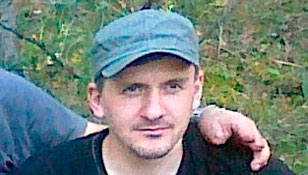
The North Caucasus’ Troubled August
Publication: Eurasia Daily Monitor Volume: 8 Issue: 160
By:

It has become a tradition that August is an especially volatile month in the North Caucasus. This year has not been an exception, with the situation in the North Caucasus becoming more aggravated, especially in those regions that were relatively quiet in the preceding time period. While Dagestan has made the most news in terms of insurgency-related violence in the past two years, the situation has not been so obvious in the other territories of the North Caucasus.
Still, the main event of August so far has taken place in Makhachkala, Dagestan’s capital. On the night of August 11, Emir Daud (aka Abdulla Magomedaliev), leader of the Makhachkala sector in the Makhachkala-Kaspiisk insurgency, was killed in a shootout with security forces. As soon as he was named leader of Dagestan’s insurgency in June, Emir Salikh (aka Ibragimkhalil Daudov) had stripped Emir Daud of special battalion commander’s status because he considered it an unnecessary unit in the command structure. This action may have meant that the relations among the top commanders of Dagestan were problematic. By subordinating emir Daud to Kaspiisk’s emir, Abu-Mukhammad, Emir Salekh may have turned Daud into an opponent.
Emir Daud had a rather colorful personality in comparison with the many unknown commanders around Emir Salikh. He started his military career during the Chechen war, and Chechen rebel military commander Shamil Basaev, shortly before his death in 2006, appointed Daud emir of the Shelkovskoi and Gudermes districts of Chechnya (https://ummanews.com, August 12, 2011), which testified to Basaev’s great trust in Daud. Yet, in 2007, Emir Daud moved to Dagestan, where he continued his activities in Makhachkala. Under Emir Khassan (aka Israpil Velidzhanov), Emir Daud was appointed commander of a special battalion that enabled him to stage attacks not only in his home city of Makhachkala, but in other parts of Dagestan as well.
Whatever the mechanism, under Emir Daud, attacks, shootouts and explosions became a daily routine in Makhachkala. It must be noted, however, that Makhachkala’s emir is not responsible for all the activity occurring in the city. Many other sectors do not shy away from carrying out operations of their own. So part of the credit for the insurgency’s activities in Makhachkala should be shared among the commanders of all of the Dagestani sectors.
The death of Emir Daud might decrease the activities of his group during the transitional period to a new leadership, but it is unlikely to benefit the federal forces significantly. The insurgency is quite self-sufficient and is able to exist autonomously without a leader, in the form of local groups numbering three to five people dispersed across the city. For a big city like Makhachkala there may be several of these types of groups carrying out such attacks. The events that followed provide some confirmation for this hypothesis. For example, on August 12, a grocery store that sold alcohol was blown up in Makhachkala. The next day, August 13, the head of Gazprom’s subsidiary in Dagestan, Rasul Kasumov, was killed. On August 16, two unidentified people shot at a policeman, Yarakhmed Osmanov in Makhachkala. The policeman died at the site of the attack, while a bystander was injured (www.riadagestan.ru, August 16).
Violence in Dagestan also took place outside Makhachkala. On August 11, a suspected rebel shot at policemen in the village of Vitsiyatel in the Untsukul district as they were checking IDs. Two policemen were badly wounded, while the attacker managed to escape unharmed (https://kavkazcenter.com, August 11).
On August 13, the head of the firefighting squad in Dagestan’s Babayurt district, Geidar Geidarov, was killed, while on August 14, the bodies of four men, including a policeman, were found on the outskirts of Botash-Yurt in the republic’s Khasavyurt district. The attack may have been tied to the holy Muslim month of Ramadan: according to the eye-witnesses, the four men were drinking alcohol, for which they may have been murdered by Islamic radicals (www.kavkaz-uzel.ru/, August 14). On August 15, a militant was arrested in vicinity of the village of Enderi in Dagestan’s Khasavyurt district. On the basis of information provided by this militant, law enforcement personnel began searching for a rebel base, but were ambushed by militants and sustained some injuries. The attackers, who managed to escape, may have numbered up to 10 persons, so a counterterrorist operation regime was introduced in the area (www.riadagestan.ru, August 16).
Attacks also took place in other regions of the North Caucasus. On August 15, a brazen attack on a military transport vehicle of the Chechen-manned Vostok battalion took place on the Chechen-Ingush border, in the area of the village of Dattykh, killing four servicemen and injuring seven. The next day, the media reported the abduction of four people –a teacher and three of his pupils at a madrasa in the central part of Gudermes (Memorial human rights center, August 16). On the night of August 17 in Ingushetia the house of a police official, Mazhit Arselgov, came under attack in Nazran. Simultaneously, kidnappings of suspected rebel sympathizers continued.
On August 16, a captain in a special police unit was wounded in an attack. The assailant was killed and identified as an active member of the armed resistance, Tamerlan Dyshekov. A statement by the Federal Security Service (FSB) about having thwarted a plot by militant sympathizers to derail the Sapsan high speed Moscow-St. Petersburg train also deserves attention. This news likely indicates that there has been an increase in anti-Russian sentiments among students, which allows the insurgents to easily recruit people beyond the limits of the North Caucasus.
In general, the situation in the region has not changed much this summer, with the exception of an intensification of militant activity in Chechnya and Ingushetia. Following the powerful blow by the security forces against the Yarmuk Jamaat in Kabardino-Balkaria in the spring of 2011, its activities decreased drastically. It is still unclear how the situation will evolve in North Ossetia, where pressure on the Muslim part of the population may increasingly radicalize Ossetian Muslim youth.




